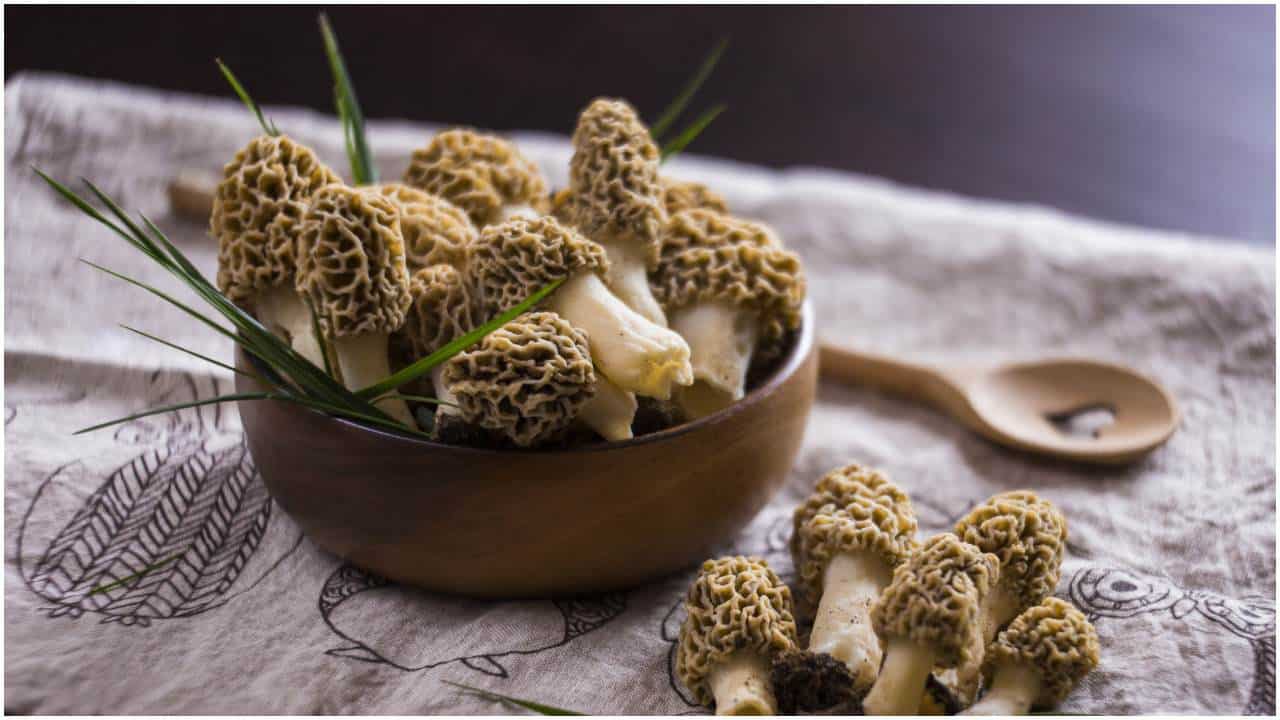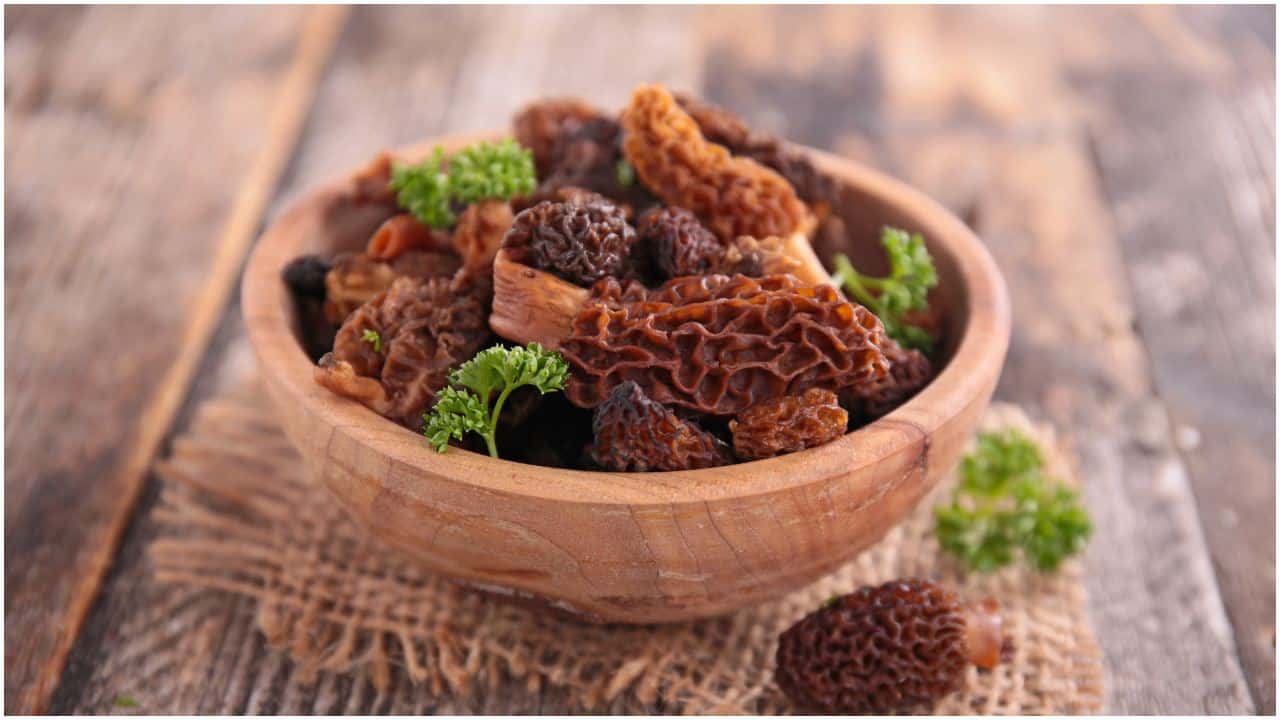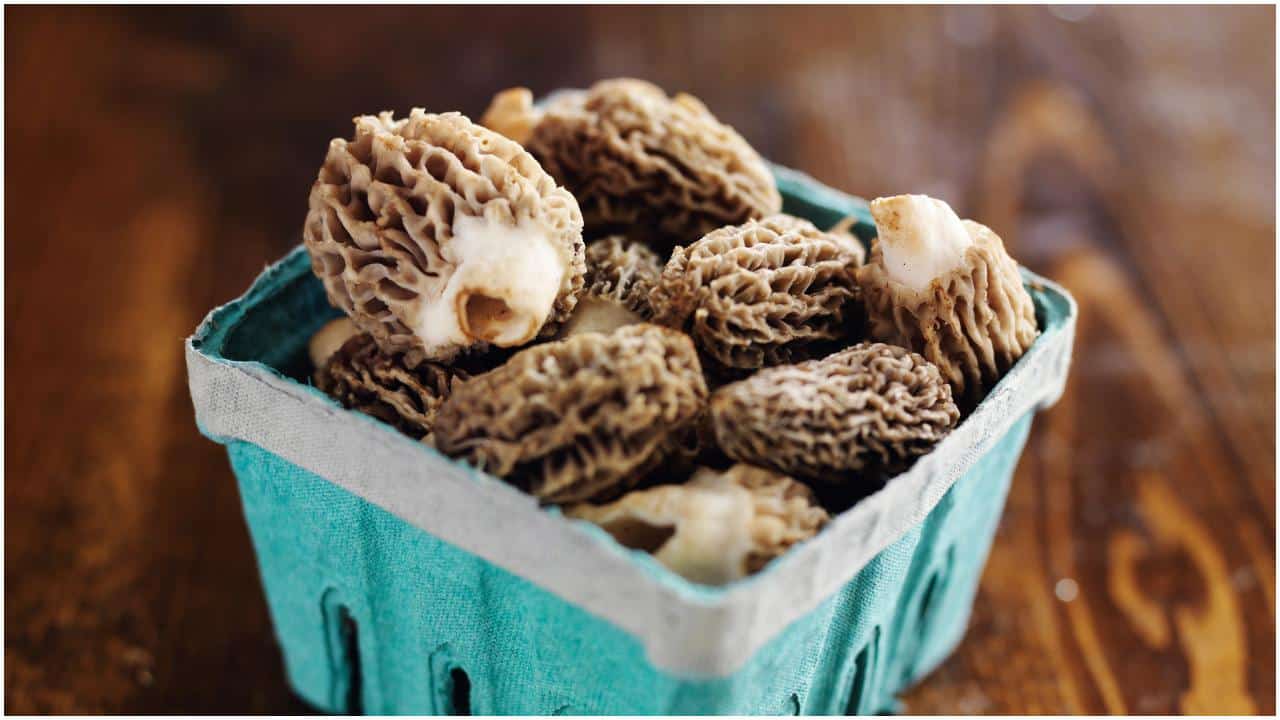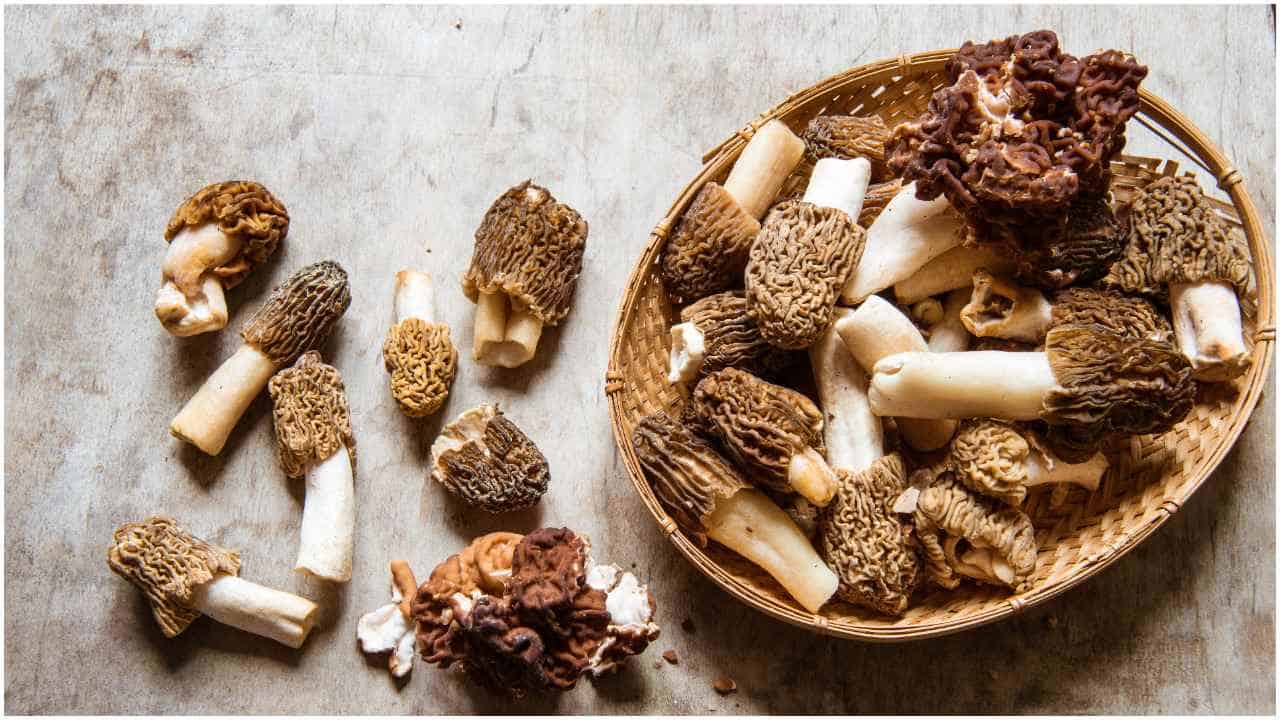What are the health benefits of morel mushrooms?
Introduction
Morel mushrooms (botanical name – Morchella esculenta) can be distinguished by their honeycomb appearance and their delicious and intense flavor.
They usually grow in conifer forests across temperate regions.
Nutritional value
They are an excellent source of vitamins, such as B1, B3, B5, B6, B9, C, and D minerals which include – calcium, iron, copper, zinc, magnesium, manganese, sodium, phosphorus, selenium, and potassium.
They are also low in fat (1 percent) and calories.
Health benefits of Morel mushrooms
Vitamin D
Vitamin D helps build and maintain strong teeth and bones by helping the body absorb calcium better. The type of vitamin D made by mushrooms is vitamin D2, also known as ergocalciferol, and is produced by these mushrooms in response to ultraviolet radiation.
In addition, if these mushrooms are placed in direct sunlight, they continue to produce vitamin D2 even after they are harvested.
100g of these mushrooms contain 34% vitamin D of the recommended daily intake.
Iron
Iron is an essential mineral that is necessary to form red blood cells that carry oxygen through our bodies.
Iron deficiency is the most frequent known form of nutritional deficiency and is estimated that 30 percent of the world population may have iron deficiency anemia and up to 80% may be deficient in this mineral.
Symptoms of iron anemia include – frequent infections, shortness of breath, extreme fatigue, headaches, or soreness of the tongue.
100g of these mushrooms contain 153% iron of the recommended daily intake.
Copper
Copper, the third most prevalent mineral in the body, is an essential mineral important for the production of red blood cells and hemoglobin, as well as for preventing muscle and joint pain.
Copper deficiency can lead to numerous health problems such as heart and circulation problems, anemia, complications in the functioning of the nervous and immune systems, pancreas and kidney disorders, and bone abnormalities.
Copper deficiency can result from malabsorption, malnutrition, or excessive zinc intake.
Symptoms of copper deficiency include osteoporosis, fatigue, connective and bone tissue abnormalities, irregular heartbeat, low body temperature, arthritis, muscle soreness, deficiencies in blood cells, frequently getting sick, paleness, and neurologic problems.
100g of these mushrooms contain 69% copper of the recommended daily intake.
Phosphorus
This mineral plays an important role in almost every aspect of your health.
Phosphorus is an essential structural component of nucleic acids and cell membranes and is responsible for creating some of the energy that you use daily.
Deficiency symptoms, also known as hypophosphatemia, include bone pain, weakness in different areas of the body, fatigue, and anxiety.
100g of these mushrooms contain 28% phosphorus of the recommended daily intake.
Manganese
Manganese is a trace mineral important in the formation of connective tissues, bones, blood-sex hormones, clotting factors, and is also involved in carbohydrate and fat metabolism, blood sugar regulation and calcium absorption.
Adult men and women have around 20 milligrams of manganese in their bodies, which is usually concentrated in the kidney, bones, pancreas, and liver.
Manganese deficiency is generally associated with chronic diseases such as osteoporosis, type 2 Diabetes Mellitus, and epilepsy.
Good natural plant sources of manganese also include nuts and seeds, avocados, raisins, seaweed, tea, spinach, pineapple, oranges, broccoli, whole grains, beans, dried peas, blueberries, and green leafy vegetables.
100g of these mushrooms contain 26% manganese of the recommended daily intake.
READ MORE: Wasabi: Health Benefits
Vitamin B2 (riboflavin)
Vitamin B2 is responsible for maintaining healthy blood cells, lowers the risk of getting cataracts, has an important role in the production of energy, acts as an antioxidant within the body, and protects the skin.
Other plant sources of vitamin B2 include – beans (especially soybeans), whole grains, brussels sprouts, almonds, wild rice, spinach, and broccoli.
Vitamin B2 deficiency symptoms include – slowed growth, fatigue, swollen magenta, digestive disorders, blurred vision, anemia, sores and cracks around the corners of the mouth, throat soreness, light-sensitive, or dermatitis.
100g of these mushrooms contain 16% vitamin B2 of the recommended daily intake.
READ MORE: Oolong Tea – Side Effects
Vitamin B3 (niacin)
Vitamin B3, also known as niacin, is an essential water-soluble vitamin that helps the body convert food into glucose. In addition, adequate levels are necessary for a well-functioning digestive system.
Symptoms of vitamin B3 deficiency include – fatigue, chronic headaches, dizziness, indigestion, vomiting, mouth sores, depression, and low blood sugar.
100g of these mushrooms contain 14% vitamin B3 of the recommended daily intake.
Zinc
Zinc is an essential trace element important for good immune function, stabilizes cellular membranes and components, plus is essential for sexual development and reproduction.
Zinc deficiency symptoms include – poor neurological function and intellectual disability, delayed sexual maturation, leaky gut syndrome, nerve damage, impotence, compromised immune system, macular degeneration, higher risk of coronary heart disease, type 2 diabetes Mellitus, inflammatory skin issues, impaired wound healing, tinnitus, impaired smell and taste, unexplained weight loss, and hypogonadism.
100g of these mushrooms contain 18% zinc of the recommended daily intake.
Selection and storage
Pick dry, springy but still firm mushrooms that are free of excessive dirt. When buying these mushrooms, choose mushrooms that have an earthy, woodsy smell.
Do not store these mushrooms in a sealed plastic bag. It is important to store unwashed mushrooms in a loosely closed paper bag in the refrigerator for up to three days.
READ MORE: Kratom: Side Effects
How to eat
These mushrooms can be served similar to other mushrooms, sauteed, grilled, or stuffed. Always soak dried mushrooms in hot water for fifteen minutes.
Side effects of Morel mushrooms
Due to their similar appearance, it’s important to identify edible mushrooms (“true morels”) from poisonous mushrooms (“false morels”). However, it is possible that even true morels can cause allergic reactions in sensitive individuals.
Tip
Never eat these mushrooms raw. Cooking eliminates compounds that may make you sick.
READ THIS NEXT: Cerasee Tea – Side Effects
References https://www.ncbi.nlm.nih.gov/pmc/articles/PMC3724376/ https://www.ncbi.nlm.nih.gov/pmc/articles/PMC2712481/ http://study.com/academy/lesson/manganese-deficiency-toxicity-symptoms.html https://www.ncbi.nlm.nih.gov/pmc/articles/PMC1592266/






